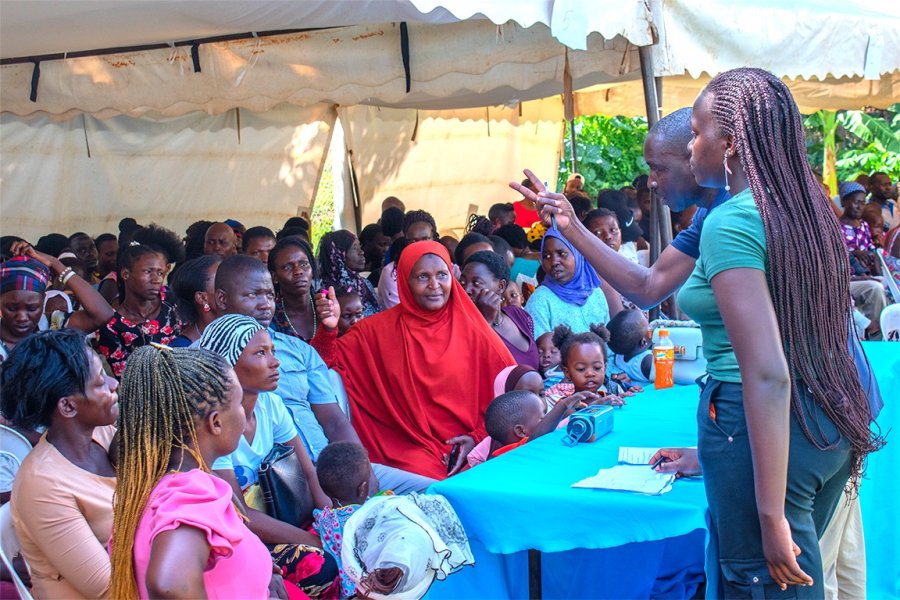
Scientists, nurses, and field workers from the MRC/UVRI and LSHTM Uganda Research Unit convened a meeting with teenage participants of the Entebbe Mother and Baby Study (EMaBs) cohort, their parents, and the EMaBs Community Advisory Board (CABs). The purpose of this gathering was to review the scientific findings generated by the cohort over time, and to establish a framework for future collaborative projects aimed at maximizing the impact of their research.
Professors Alison Elliott, head of the Unit’s vaccines research theme, and Emily Webb, director of the MRC International Statistics and Epidemiology Group (ISEG), led a productive exchange of insights from key studies conducted within the cohort. These studies have addressed critical health issues such as allergies, hypertension, and genetics, providing invaluable data and findings that can inform future health interventions and shape health policies. Professor Elliott emphasized the importance of ongoing dialogue and collaboration to ensure these insights are effectively translated into practical health interventions.
Towards stronger inter-cohort collaboration
Presentations by Dr. Harriet Mpairwe, a clinical epidemiologist at the Unit, and Dr. Alex Mentzer, a senior clinical researcher from the University of Oxford, highlighted strategies to enhance the cohort's potential impact. Dr. Mpairwe and Dr. Mentzer emphasized the value of inter-cohort collaborations, both nationally and regionally, to amplify the benefits of the research conducted within the cohort. They also stressed the significance of participating in international research consortia, which would not only broaden the scope of cohort but also strengthen research capacity.
The meeting also explored strategies for involving more stakeholders in future research initiatives.
“Engaging a broader community in the research process not only enhances the relevance and impact of the studies but also builds a stronger support network for implementing research findings.” remarked Dr. Mpairwe.
A new way of working
To achieve this, the scientists will focus on building robust partnerships with diverse global stakeholders to actively initiate and participate in collaborative studies and share data to enhance the robustness of research findings. This approach will not only enhance the relevance and impact of their research but also create a strong support network for the implementation of research findings. Additionally, they will optimize capacity-building initiatives, such as mentorship programs, training workshops and invest in research infrastructure such data management systems and field equipment to equip researchers and field workers with the necessary skills and capacity to conduct high-quality research and translate findings into practical health intervention
About the EMaBS cohort
The Entebbe Mother and Baby Study (EMaBS) is a unique birth cohort, on-going in Africa. The study was designed as a trial [ISRCTN32849447], to investigate possible benefits of treating worm infections during pregnancy and early childhood. Now the cohort is providing many opportunities to explore and understand how experiences early in life can affect health outcomes in the tropics.The study is based at the Entebbe General Hospital and at the MRC/UVRI & LSHTM Uganda Research Unit.
LSHTM's short courses provide opportunities to study specialised topics across a broad range of public and global health fields. From AMR to vaccines, travel medicine to clinical trials, and modelling to malaria, refresh your skills and join one of our short courses today.
